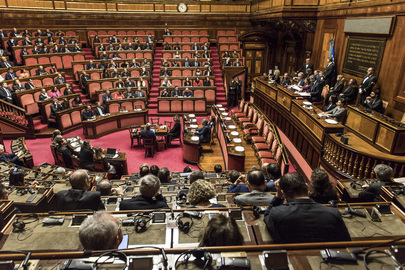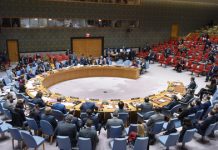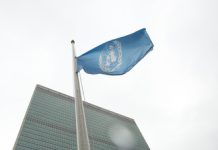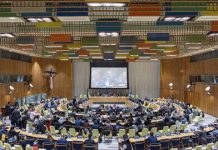UN chief urges world leaders to drive down global warming
As world leaders gather in Brazil for the COP30 climate talks, UN Secretary-General António Guterres on Thursday insisted on the need for urgent action to drive down rising global temperatures.
Every fraction of a degree higher caused by man-made climate change means more hunger, more displacement, more economic hardship, more lives lost and ecosystems damaged, he told Heads of State in Belem.
Each year that is warmer will hammer economies, deepen inequalities and impact developing countries hardest, even though they did least to cause the climate crisis, the UN chief said:
“Science now tells us that a temporary overshoot beyond the 1.5°C limit – starting at the latest in the early 2030s – is inevitable. We need a paradigm shift to limit this overshoot’s magnitude and duration and quickly drive it down. Even a temporary overshoot will have dramatic consequences; it could push ecosystems past irreversible tipping points, expose billions to unliveable conditions and amplify threats to peace and security.”
Echoing those comments, the head of the UN weather agency WMO, Celeste Saulo, said that greenhouse gas emissions are at their highest level in 800,000 years.
The Earth’s average temperature from January to August this year was about 1.42°C above pre-industrial levels, she said.
Oceans are also registering record highs, which is inflicting lasting damage on marine ecosystems and economies, the WMO chief added.
Brazil launches major fund to protect tropical forests
In related news, COP30 hosts Brazil on Thursday announced the launch of an initiative to protect tropical forests in recognition of the key role they play in holding back global warming.
The Tropical Forests Forever Facility aims to make forests “worth more – standing – than cleared” and to channel up to $4 billion a year to 74 tropical nations.
Countries conserving their forests will receive $4 per hectare per year, verified through satellite monitoring.
Brazil’s President Luiz Inácio Lula da Silva pledged an initial $1 billion, with 20 per cent of each country’s payments directed to local and indigenous communities.
Other project backers include Colombia, Indonesia and Ghana, which are among the more than 190 countries taking part in the COP30 climate summit where talks will focus on forest protection, climate finance and nature-based solutions.
Afghanistan’s opium output drops but synthetic drugs on the rise
Opium poppy cultivation in Afghanistan has fallen by a fifth over the past year, continuing a steep decline since the Taliban issued a nationwide ban in 2022.
According to the UN Office on Drugs and Crime (UNODC), 10,200 hectares of land in Afghanistan were used for opium cultivation this year; that’s way down on the 232,000 hectares recorded before the ban.
Despite this progress, there are concerns that drought and widespread poverty could encourage a return to poppy cultivation, especially since more than 40 per cent of farmland lies barren and millions of Afghans are returning from abroad.
In its report, UNODC also noted that synthetic drug production – particularly of methamphetamine – is rising sharply, with seizures in and around Afghanistan up 50 per cent by late 2024.
Daniel Johnson, UN News.
Source of original article: United Nations (news.un.org). Photo credit: UN. The content of this article does not necessarily reflect the views or opinion of Global Diaspora News (www.globaldiasporanews.com).
To submit your press release: (https://www.globaldiasporanews.com/pr).
To advertise on Global Diaspora News: (www.globaldiasporanews.com/ads).
Sign up to Global Diaspora News newsletter (https://www.globaldiasporanews.com/newsletter/) to start receiving updates and opportunities directly in your email inbox for free.






























